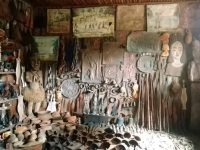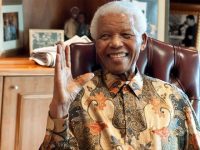Focus on Africa decided to interview Cyrie Sendashonga, the widow of the late Rwandan Minister…

Africa Day, interview with Prof. Nicholas Cheesman
On the occasion of the Africa Day (25th of May), Focus on Africa wants to ask some questions to Prof. Nicholas Cheeseman, Director of the Centre for Elections, Democracy, Accountability and Representation at the University of Birmingham.
Prof. Cheeseman, some years ago you wrote the book “How to rig an election”: what are the systems used by African dictators to rig the elections?
There is a wide and increasingly sophisticated set of strategies used to rig elections. Many leaders use the “invisible” strategies historically perfected by Western states, such as gerrymandering and voter suppression, to ensure they start with an unfair advantage. By making sure opposition supporters don’t register to vote, for example, ruling parties can win elections even when they are not that popular – and this strategy is particularly useful because the manipulation is done well in advance of election day.
Others who have a smaller base of support buttress by harassing and detailing their opponents, using fear and intimidation to depress the opposition vote. If it can be done well, divide and rule politics is always particularly impactful, because ruling parties rarely lose to a fragmented opposition. In the modern era of smart phones and Pegasus spyware this can be backed up by hacking into opposition networks to find out their strategies while pumping out disinformation about rival leaders.
This range of strategies is almost always undermined by the distribution of election “gifts” as governments effectively seek to bribe voters who may otherwise feel they have received little from the state. Taken together, this range of tactics is formidable – but they do not always work. In my recent book the Moral Economy of Elections in Africa we show that candidates who spend the most do not always win because voters see through their cynical ploys. When the public is frustrated and angry at economic decline and corruption scandals, voters may bravely mobilise to “kick out the bums”, giving dictators a bloody nose.
That has now happened in a wide range of countries in which the electoral playing field was anything but equal, including Nigeria (2015), Gambia (2016), Malawi (2020), Zambia (2021), and Kenya (2022). This means that while elections are vulnerable to subversion, they retain the capacity to surprise – and to hold leaders to account.
This year there will be two important elections in Zimbabwe and in the Democratic Republic of Congo: do you think that these elections will be free and fair?
I think it is very unlikely that either election will be free and fair. Let us take Zimbabwe. Opposition and civil society leaders are being arrested and detained for months on trumped up charges motivated by political considerations. Media is highly controlled. Non-Governmental Organizations are being increasingly tightly regulated and prevented from doing basic tasks like encouraging voter registration. The government is using state money and making false claims to try and build its popularity. Traditional leaders, under great pressure from the ruling party, are blocking the main opposition party from effectively holding meetings and campaigning. The electoral commission is not independent, and neither are the security forces. Even if the counting of votes on election day is accurate, how can such an election be free and fair? It has been thoroughly manipulated before the official campaign periods even began. This doesn’t mean the opposition cannot win – the multiple failings of the government over many years make it vulnerable to defeat, despite the wide array of rigging strategies is using. But if the opposition does win, it will have had to overcome it starting the election race 100m behind its rival, carrying a heavy weight and having one hand tied behind its back.




